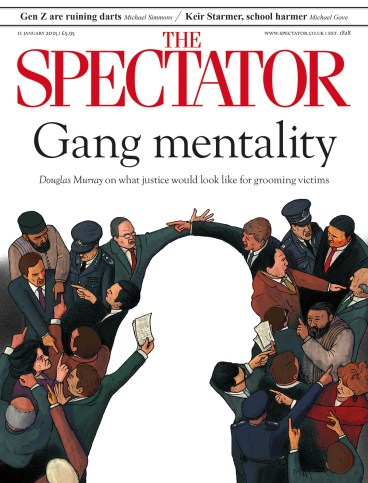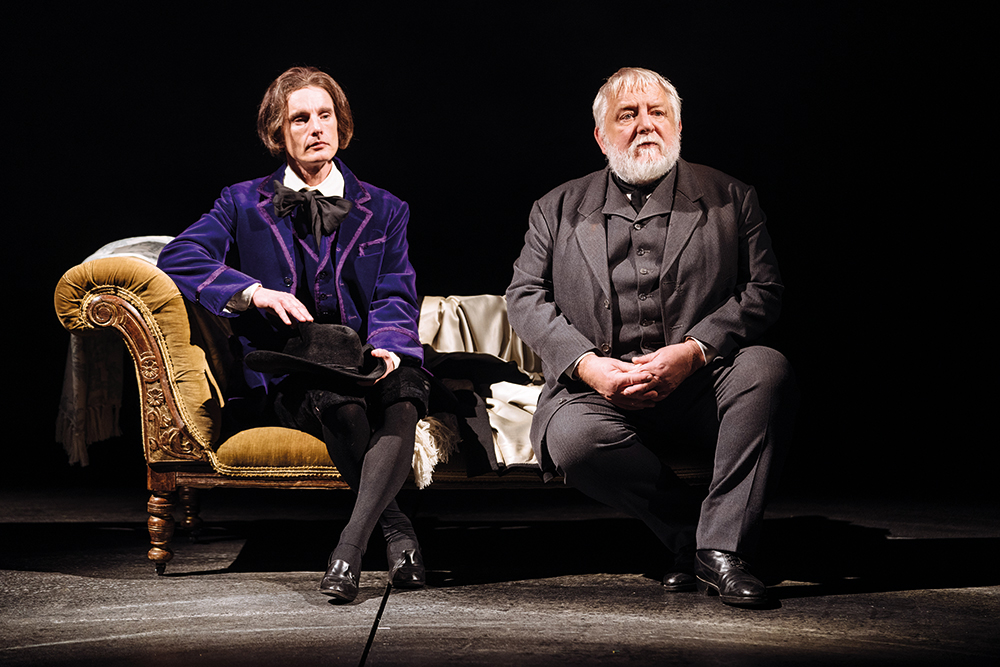
The Invention of Love opens with death. Tom Stoppard’s play about A.E. Housman starts on the banks of the Styx, where the recently deceased poet is waiting for Charon, the boatman, to ferry him across the water. Charon has been told to pick up ‘a scholar and a poet’ and he’s expecting two souls, not one. Houseman explains that he pursued both careers and is therefore a solo passenger.
The play’s storyline emerges slowly and with immaculate taste. Stoppard is not one for cheap tricks
This takes place in 1936, the year of Housman’s death, and we then flip back to Oxford in the 1870s. The river Styx becomes the Cherwell, where Housman and two chums are paddling upstream while discussing a flamboyant young intellectual, Oscar Wilde. This visually challenging scene involves three men rowing in separate boats that somehow merge into a single vessel. The solution is technically brilliant, artistically pointless and oddly satisfying.
We cut to Housman’s rooms at St John’s College where he immerses himself in the Latin love poets, Catullus and Horace mainly, with a few asides about Virgil, Propertius and Tibullus. Much of the dialogue focuses on the corrupt medieval texts that bear the foolish emendations of ill-taught scholars. Stoppard doesn’t spare us the details. If you’re aware that ‘bella’, the plural of ‘war’ in Latin, is also the feminine singular of ‘bellus’ meaning ‘pretty’, you’ll understand one of the easier passages of critical exegesis in this play. A bit of advance homework may be helpful. Look up ‘trochus’, the Latinised form of the Greek for ‘hoop’, and you’ll discover that it was a gift commonly presented by an older man to his younger playmate. But why would a Roman poet like Horace call it a ‘Greek hoop’ when his readers knew its etymology already? Such puzzles are addressed in speeches that may leave some viewers feeling excluded.
Fear not.









Comments
Join the debate for just £1 a month
Be part of the conversation with other Spectator readers by getting your first three months for £3.
UNLOCK ACCESS Just £1 a monthAlready a subscriber? Log in